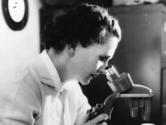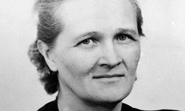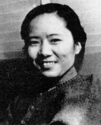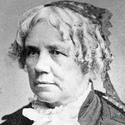-
About
- About Listly
- Community & Support
- Howto
- Chrome Extension
- Bookmarklet
- WordPress Plugin
- Listly Premium
- Privacy
- Terms
- DMCA Copyright
- © 2010-2024 Boomy Labs



She was the first women and first geologist to be awarded a Ph.D. from Johns Hopkins University. In 1896, she became the first woman scientist hired at the United States Geological Survey (USGS) and pioneered the use of microscopes in the study of minerals and rocks

Although she is known to be an innovative and creative marine biologist, she is primarily known to be a writer. After completion of her graduate studies at Johns Hopkins, she joined the U.S. Bureau of Fisheries writing about fishing and the sea for radio programs

She studied at Cambridge as an undergraduate but was not awarded a degree because the university didn’t grant degrees to women at that time. After meeting Harlow Shapley, the Director of the Harvard College Observatory, who had just begun began a graduate program in astronomy, she left England for the United States in 1923.

After receiving her master’s degree and doctorate in cell physiology from New York University, Cobb entered the National Cancer Institute for a postdoctoral fellowship. Her research involved designing new experiments to compare the in vivo effects of chemotherapeutic agents with in vitro effects on the same tissue obtained from the patient.
She returned to New York University and entered an exciting phasic cell research in the cancer chemotherapy program. Her research on normal and malignant pigment cells continued for 22 years. Her publications in this field include 50 books, articles, and other scholarly reports.

Irene Joliot-Curie was the daughter of Marie Curie and Pierre Curie. After having started her studies in Paris, she served as a nurse radiographer during the First World War. She became Doctor of Science in 1925.
She did important work on natural and artificial radioactivity, transmutation of elements, and nuclear physics and was awarded the Nobel Prize in Chemistry for 1935 in recognition of their synthesis of new radioactive elements.

Curie was the first woman to be awarded a Nobel Prize and remains the only woman to have won two Nobel Prizes, each in different fields.
Along with her doctoral advisor at the University of Paris (Sorbonne), and her husband, she won the 1903 Nobel Prize in Physics for their research on radiation phenomena. Her discover of radium and polonium (named after her native country of Poland) brought her the 1911 Nobel Prize in Chemistry.

Her interest in physics was piqued when she heard the noted physicist, Enrico Fermi, speak about the new field of nuclear physics. After graduating with honors from Hunter College, she overcame formidable discrimination against women but entered the University of Illinois’s College of Engineering Physics Department. She was the only woman among 400 men.

Dr. Wu came to the U.S. in 1936 after graduating with a B.S. from Nanking Central University. She received her doctorate from the University of California, Berkeley in 1940.
She worked with the Manhattan Project research team to develop the atomic bomb. Her most notable accomplishment was to disprove the “law of conservation of parity.” Two of her colleagues, Dr. Tsung-Dao Lee and Dr. Chen Ning Yang were instead awarded the Nobel Prize for physics in 1957 – a fact widely blamed on sexism by the Nobel election committee.

Noether received her doctoral degree from University of Erlangen Nuremberg in the field of mathematics.
She is known today as a pioneer in the field of abstract algebra. Emmy Noether published her most important worn on non-commutative algebras beginning in 1927. Because of prejudice against women scientist, Noether taught for years without pay at the University of Goettingen, mentoring countless students, before her admission as full fledged lecturer in 1919.

Growing up in the whaling town of Nantucket, Massachusetts Mitchell grew up learning about the stars and navigation. She could rate the chronometers for whaling ships and plot the movements of the planets.
In 1847, her discovery of a comet invisible to the naked eye won her international fame and a medal from the king of Denmark. After that, she went to work for the U.S. Nautical Almanac Office to compute ephemeredes of the planet Venus
